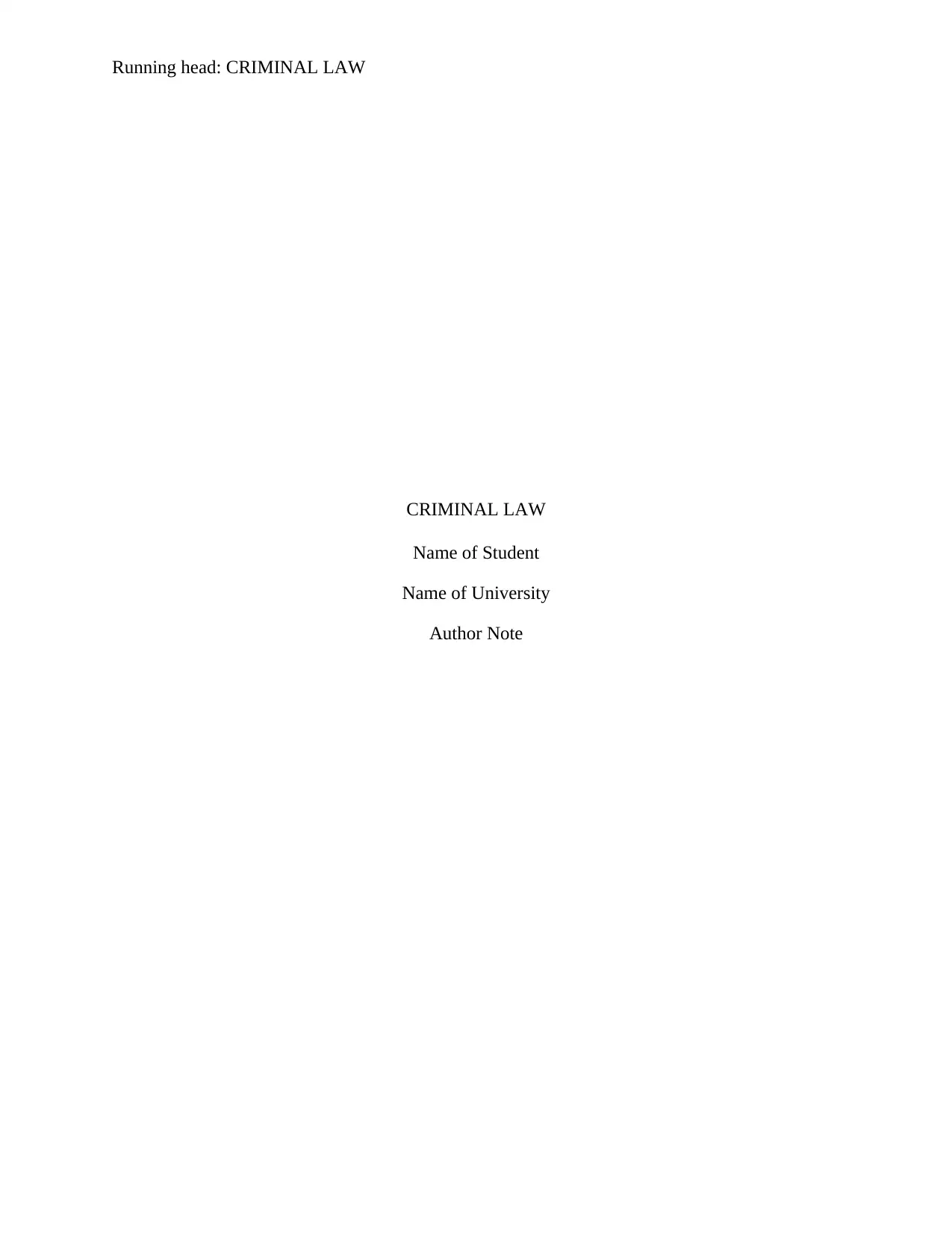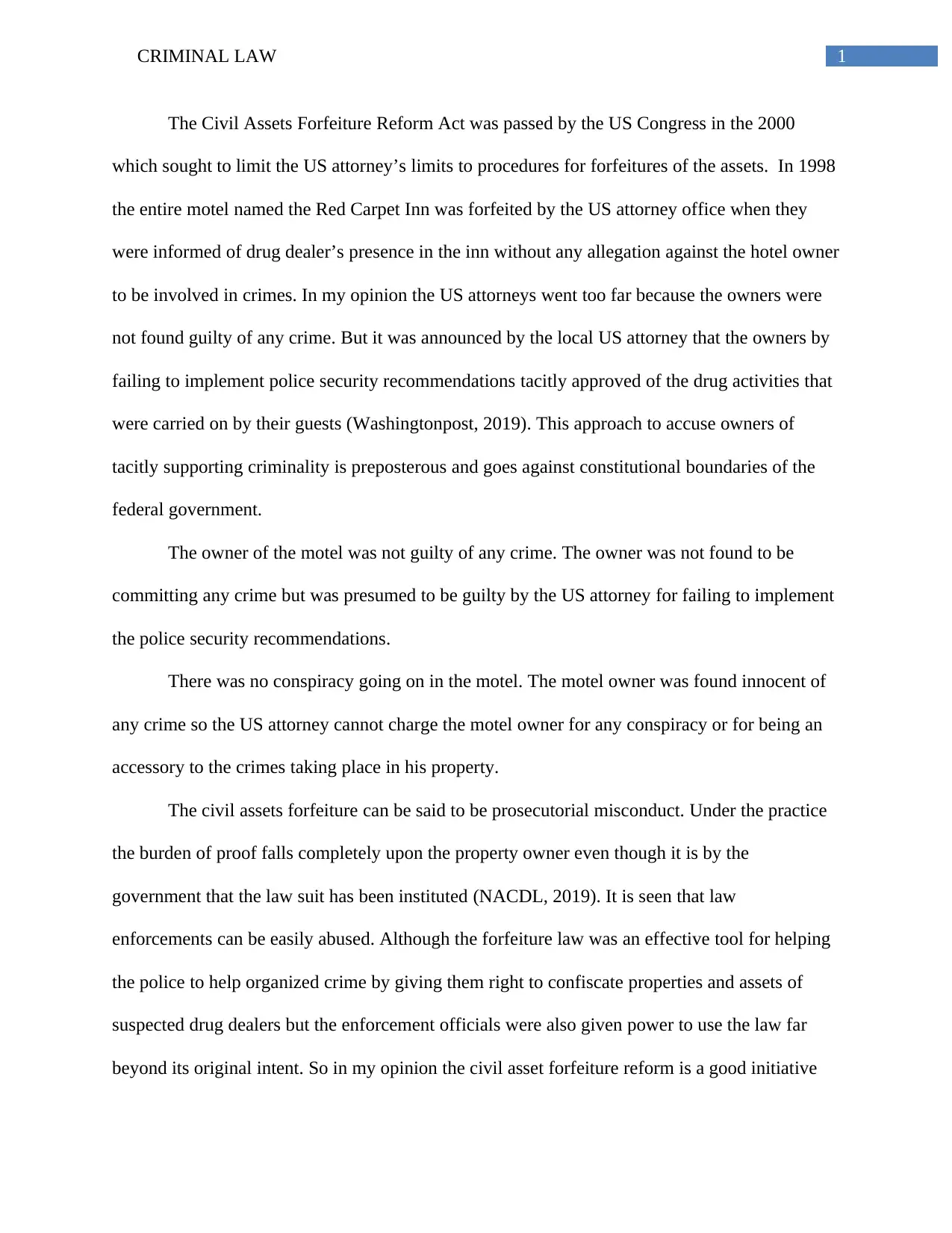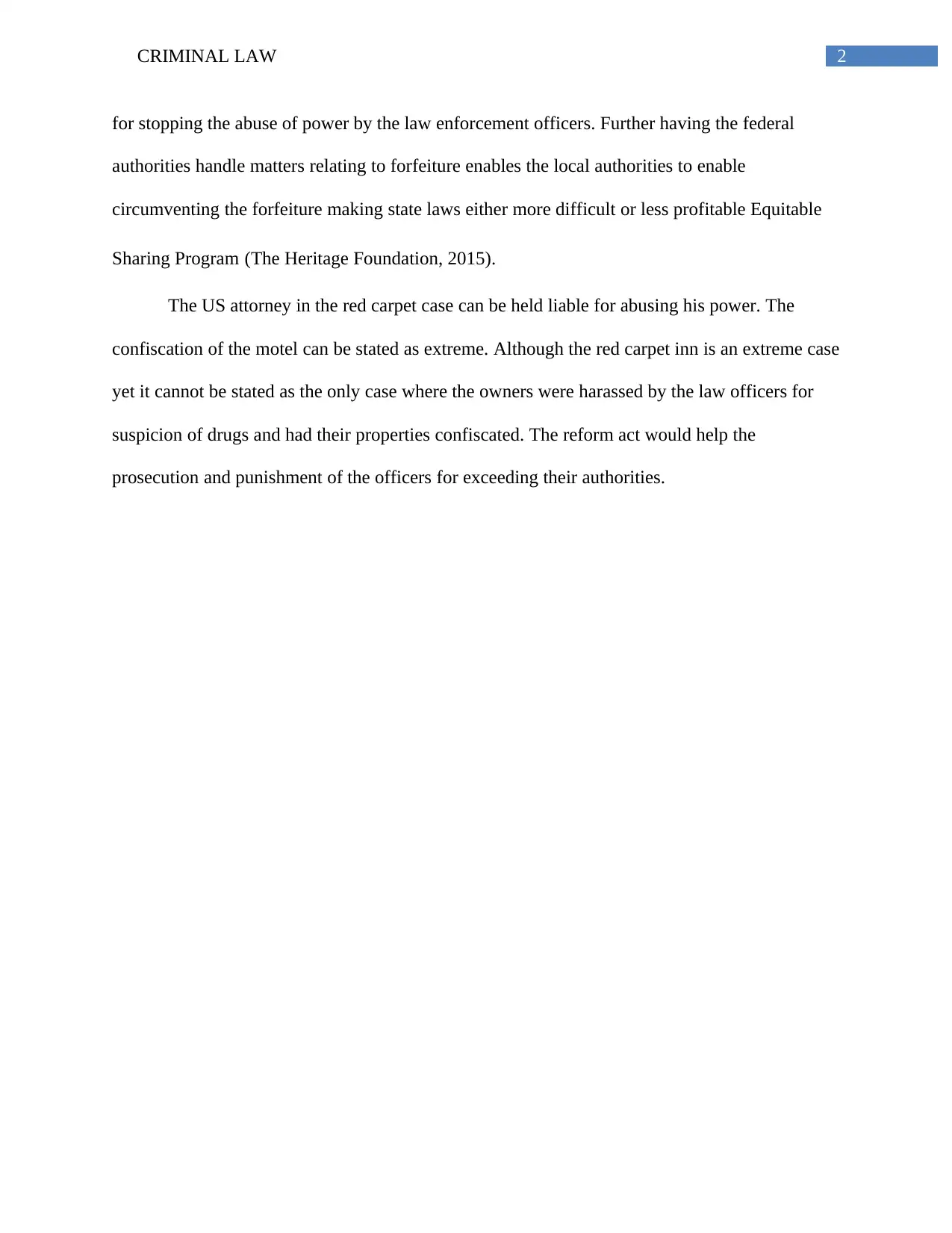University Criminal Law 3: Red Carpet Inn Case and CAFRA
VerifiedAdded on 2022/11/14
|4
|583
|286
Discussion Board Post
AI Summary
This assignment analyzes the Red Carpet Inn case, where a motel was forfeited due to alleged drug activity, and discusses the Civil Asset Forfeiture Reform Act (CAFRA). The author argues the US Attorney overstepped by targeting the owner without proof of criminal involvement. The owner was not found guilty of any crime, and the author believes the US Attorney's actions constituted prosecutorial misconduct. The author supports CAFRA as a necessary reform to prevent abuse of power by law enforcement and prevent the circumvention of state laws. The author concludes the US Attorney should be held liable for exceeding their authority in the Red Carpet Inn case. The assignment also critiques the practice of civil asset forfeiture, highlighting the burden of proof placed on property owners and the potential for abuse by law enforcement. The author references several sources to support their arguments.
1 out of 4





![[object Object]](/_next/static/media/star-bottom.7253800d.svg)